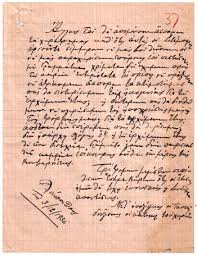
Trevor Todd and Jackson Todd have over 60 years combined experience in estate litigation including claims of elder financial abuse.
In King v Vimhel 2024 BCSC 1745 a predator who had gone into hiding was found in absentia to have committed elder abuse and ordered to pay punitive damages of $50,000 and return a $1.2 million house to an 88 year old victim with advanced dementia.
The victim was living alone when she met the defendant in 2013. In 2020 she made him a joint tenant on the home she had owned since 1991. He had little or no income or assets when they met and he was living in his car. the court found that he immediately began to exert undue influence and control over the victim and within a year was in a romantic relationship with the victim and began to physically , verbally and mentally abuse her to the extent that she feared him as he told her he would kill her if she didn’t comply with his demands. He installed security cameras and double -sided locks so he could lock her in and she stopped seeing her family with whom she was close. He took over her finances and forged documents using her name and emptied a bank account of hers of $515,000 .
He then hid her in a motel which had no cooking facilities and cost $3000 per month. Her daughter hired a private detective who found her in the motel where she was completely isolated and she was ” rescued” by the RCMP.
The court set aside the transfer of the joint tenancy home on the basis of both resulting trust and undue influence.
Resulting Trust
In Pecore v. Pecore, 2007 SCC 17, the Supreme Court of Canada held:
[20] A resulting trust arises when title to property is in one party’s name, but that party, because he or she is a fiduciary or gave no value for the property, is under an obligation to return it to the original title owner: see D. W. M. Waters, M. R. Gillen and L. D. Smith, eds., Waters’ Law of Trusts in Canada (3rd ed. 2005), at p. 362.
Where a transferee has received property for no consideration, the law presumes that they hold that property in a resulting trust in favour of the transferor. This is because “equity presumes bargains, not gifts”: Pecore at para. 24.
In Pavlovich v. Danilovic, 2019 BCSC 153 (aff’d 2020 BCCA 36), Justice Iyer, as she then was, recently discussed the law concerning resulting trust claims. She held:
… A resulting trust is presumed to arise in circumstances where a person gratuitously transfers property to another: McKendry v. McKendry, 2017 BCCA 48 at para. 35; Pecore v. Pecore, 2007 SCC 17 at para. 24. Unless the transfer takes place in certain family relationships (see Pecore at paras. 28, 30–33, 36), the law presumes that the transferor intended to convey legal title to the property but retain the beneficial interest. If the presumption of resulting trust applies, it is the transferee who bears the onus of establishing that a gift was intended: Modonese at para. 136; Pecore at para. 24.
When a property is purchased by one party but held in joint tenancy, there is a presumption that the transferor intended to retain the entire beneficial interest, including the right of survivorship, unless there is evidence to the contrary: see McKendry at para. 36; Bergen v. Bergen, 2013 BCCA 492 at para. 42; Baryla v. Baryla, 2019 BCCA 22 at para. 26–29.
The presumption of resulting trust also applies to gratuitous transfers of real property. This is so despite the statutory presumption of indefeasible title in the Land Title Act, R.S.B.C. 1996, c. 250: Fuller v. Harper, 2010 BCCA 421 at para. 43 (sub nom Fuller v. Fuller Estate). In Aujla v. Kaila, 2010 BCSC 1739 at paras. 32–37, Justice Harris concluded that if a transfer is gratuitous, the statutory presumption in s. 23(2) of the Land Title Act, that the party challenging the state of title has the burden of proof, can be discharged by the operation of the presumption of resulting trust: see also Modonese at para. 138–141; Zeligs Estate v. Janes, 2015 BCSC 7 at paras. 39–40; McKendry at para. 37.
In Pecore, the Court highlighted the importance of the resulting trust in situations, like here, where evidence regarding the transferor’s intentions is unavailable or unpersuasive. At para. 23, the Court held, in part:
For the reasons discussed below, I think the long-standing common law presumptions continue to have a role to play in disputes over gratuitous transfers. The presumptions provide a guide for courts in resolving disputes over transfers where evidence as to the transferor’s intent in making the transfer is unavailable or unpersuasive. This may be especially true when the transferor is deceased and thus is unable to tell the court his or her intention in effecting the transfer.
The transfer document signed by the victim provides that the consideration given by the defendant for his one-half interest in the Property was “$1.00 and natural love and affection”. “Natural love and affection” has been termed a formulaic phrase, one not determinative of whether value for a transfer was actually provided: Fleming v. Kwakseestahla, 2010 BCSC 1006 at para. 19; Pinsonneault v. Courtney, 2022 BCSC 120 at para. 168.
Undue Influence
In Davy v. Davy, 2019 BCSC 1826, Justice Gomery summarized the legal framework for the assessment of claims of undue influence:
The essential legal framework for the assessment of claims of undue influence was established in Allcard v. Skinner (1887), 36 Ch. D. 145 (C.A.) and confirmed in Geffen v. Goodman Estate, [1991] 2 S.C.R. 353 [Goodman Estate]. This framework is regularly applied in British Columbia; Turner v. Turner, 2010 BCSC 49 [Turner] at paras. 48-61 and 145-157; Modonese v. Delac Estate, 2011 BCSC 82 [Modonese] at paras. 96-129; Porter Estate v. Porter, 2015 BCSC 2354 [Porter Estate] at paras. 36-133; Cowper-Smith v. Morgan, 2016 BCCA 200 [Cowper-Smith] at paras. 39-40 and 48-53; Burkett v. Burkett Estate, 2018 BCSC 320 [Burkett] at paras. 187-217. It was not disputed in argument.
Undue influence is an equitable doctrine to save people from being victimized by other people. A transaction induced by undue influence may be set aside. There are two classes of case. The first class arises where the party seeking to set aside the transaction proves that the defendant engaged in improper conduct that dominated the will of the victim. That is not the plaintiff’s claim in this case.
The second class of case arises where the defendant and the supposed victim were in a relationship of dependency involving a potential for domination of the victim by the defendant. In these cases, if the transaction involved a gift or bequest, as opposed to a commercial transaction, undue influence is presumed and the burden lies on the defendant to show that the victim entered into the transaction as a result of his or her own full, free and informed thought. In the case of a commercial transaction, there is a further requirement: the plaintiff must also show that the contract in question worked unfairness by conferring undue disadvantage on the victim or undue advantage on the defendant.
Vulnerability and dependency are the hallmarks of undue influence: McMaster Estate v. McMaster, 2021 BCSC 1100 at para. 48.




